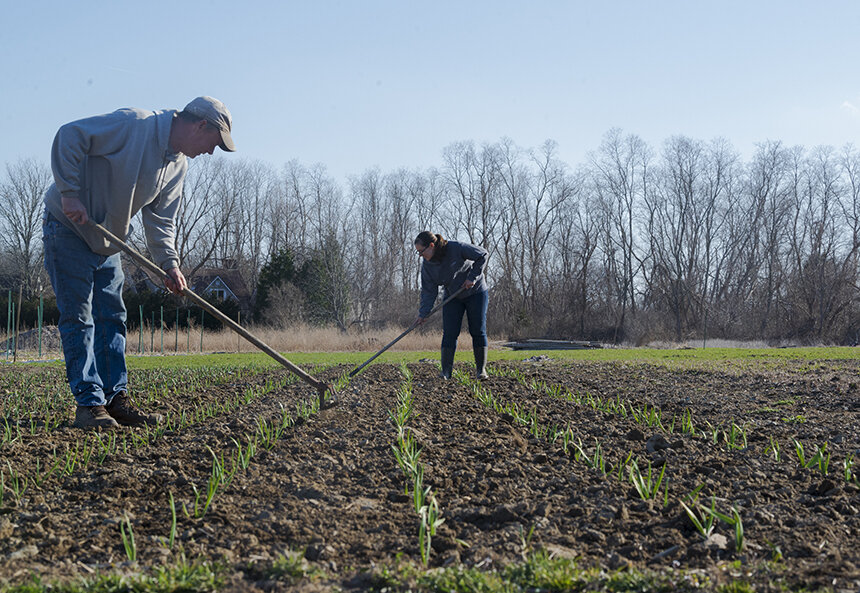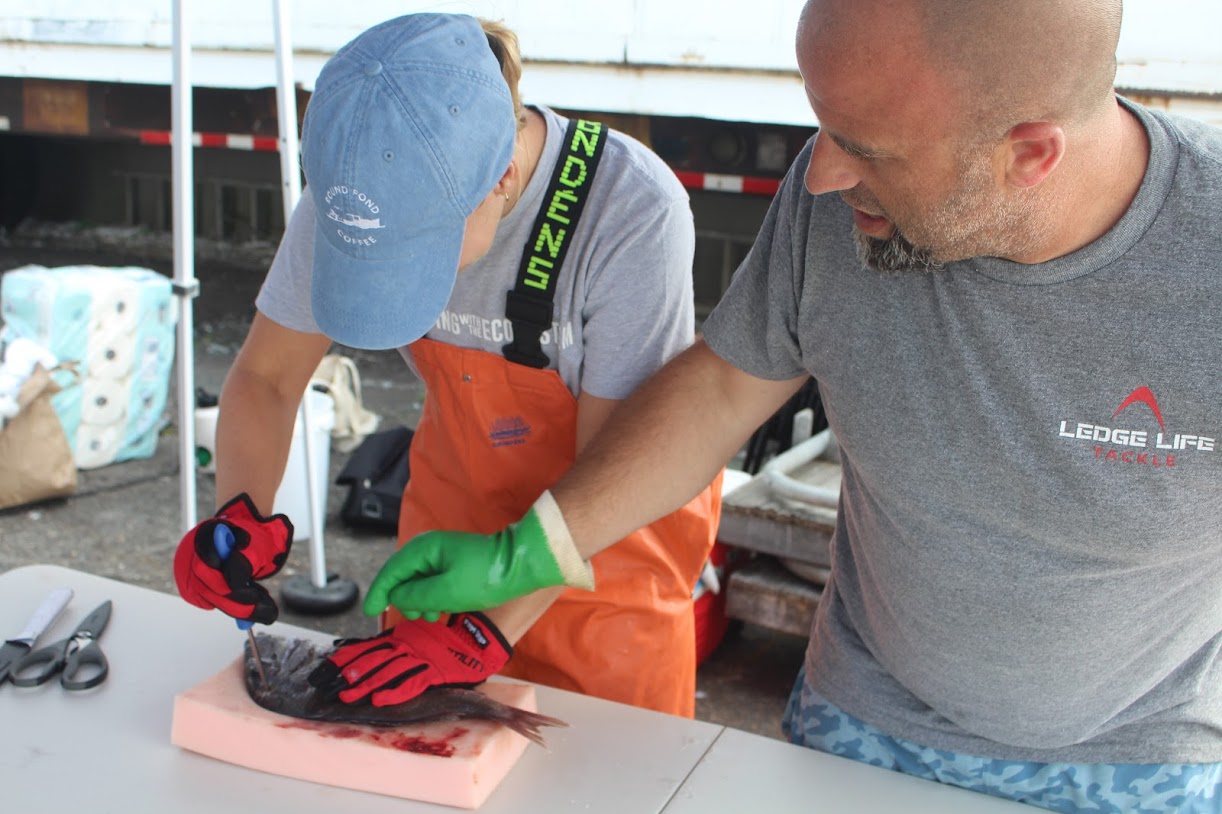Advocates Seek Funding for Agriculture Land Preservation Committee
Without funding for farmland conservation, an estimated 8,000 acres of farmland will be lost to development by 2040
May 22, 2023
PROVIDENCE — Farmers and conservation advocates had their day on Smith Hill last week, asking lawmakers to save the state’s vanishing agricultural land before it’s too late.
Legislators in the General Assembly are considering appropriation resolutions (H6018 and S0560) of $5 million — a paltry amount in the $14 billion budget proposed by Gov. Dan McKee — that would fund the state’s farmland preservation programs starting next fiscal year.
The public body responsible for running farmland conservation efforts, the Agriculture Land Preservation Commission (ALPC), has typically received funding via an allocation from green projects bonds that appear at the ballot box every two years.
But the green projects bond approved by voters last November contained no new funding for agricultural preservation; the last time the programs received funding was in the 2021 green bond, which included $3 million for both forest and farmland preservation.
ecoRI News reported last month that, after accounting for its current obligations, the ALPC will have $317,000 left in its bank account, according to the commission. Due to its money woes, the commission has had to narrow its focus to only a few farms, leaving another 50 applications for farm preservation in its backlog.
Without funding for farmland conservation, the group’s estimated 8,000 acres of farmland will be lost to development by 2040. The farm sector in Rhode Island provides some 2,500 jobs and contributes $250 million in direct revenue to the state.
The sponsor of the House resolution, Rep. Michelle McGaw, D-Portsmouth, told members of the House Finance Committee the money was important to bolster farmers as local businesses.
“We saw the challenges with food security in relation to the pandemic,” said McGaw, “when we had supply chain issues, how important it was to make sure that we have access to local food sources. Making sure we are supportive of our local farms is going to be more and more important as time goes on.”
Without funding the ALPC, McGaw said Rhode Island could be leaving a lot of federal money on the table for conservation. For every $5 million investment with state dollars, the state could receive another $5 million to $8 million in federal investments.
There’s also more federal money coming over the horizon if lawmakers can pony up the funds for farmland conservation. The Inflation Reduction Act sets aside $370 million for energy and climate change spending, with specific amounts of money included for sustainable agriculture that will require state government matching.
Because of the state’s small size and industrial legacy, farmland in Rhode Island is an endangered species. About 7% of the total land in the state — around 50,000 acres — is farmland, the lowest amount of any state nationwide. It’s also some of the most expensive nationwide, at $16,468 per acre on average.
And as calls grow louder for more affordable housing and renewable energy installations, pressure on farmland from developers is mounting. Like other forms of green space, farmland is especially attractive to developers of all stripes. Undeveloped land, or clear, wide-open spaces with few buildings on it, are cheaper for developers to build on, no matter whether it’s a solar array or housing subdivision. Cheaper land means greater profits down the line.
Farmland has entered a perfect storm in which to go extinct. A generation of farmers right now are contemplating retirement, and with property values still at an all-time high from the pandemic, there’s been no better time to cash out the family farm.
Development pressures on farmland remain eternal, and the ALPC was formed in 1981 specifically to set aside farmland with state money for preservation in perpetuity. Since 1985, the state has preserved 8,000 acres across 124 individual farms through its programs.
Farmland saved under the ALPC’s programs is saved forever. While the process of putting together financing for farmland can get complicated, the ALPC is the entity that arranges for an easement to be put on the property in perpetuity, prohibiting it from ever becoming developed land.
Keeping farmland as farmland has environmental benefits too. Well-managed farmland provides food and shelter to wildlife, controls flooding and prevents erosion, protects wetlands, watersheds and air quality, and improves the overall health of soils. Many of the environmental benefits are lost when farmland is developed.
McGaw’s resolution was held for further study. An identical resolution, introduced by Sen. Louis DiPalma, D-Middletown, is scheduled to be heard in Senate Finance on Thursday.




Don’t hold your breath on this Governor McKee’s brother is a developer.
losing farmland to “development” is such a loser environmentally, but our community has not really prioritized promoting development in compact walkable neighborhoods that not only can save farmland, but are also significantly more energy-efficient. To do this we need to take multiple steps – on zoning reform, historic tax credits, making farms more profitable, stop expanding highways that encourage long distance commuting and driving, and move agencies in state government that have moved out of the urban core back.